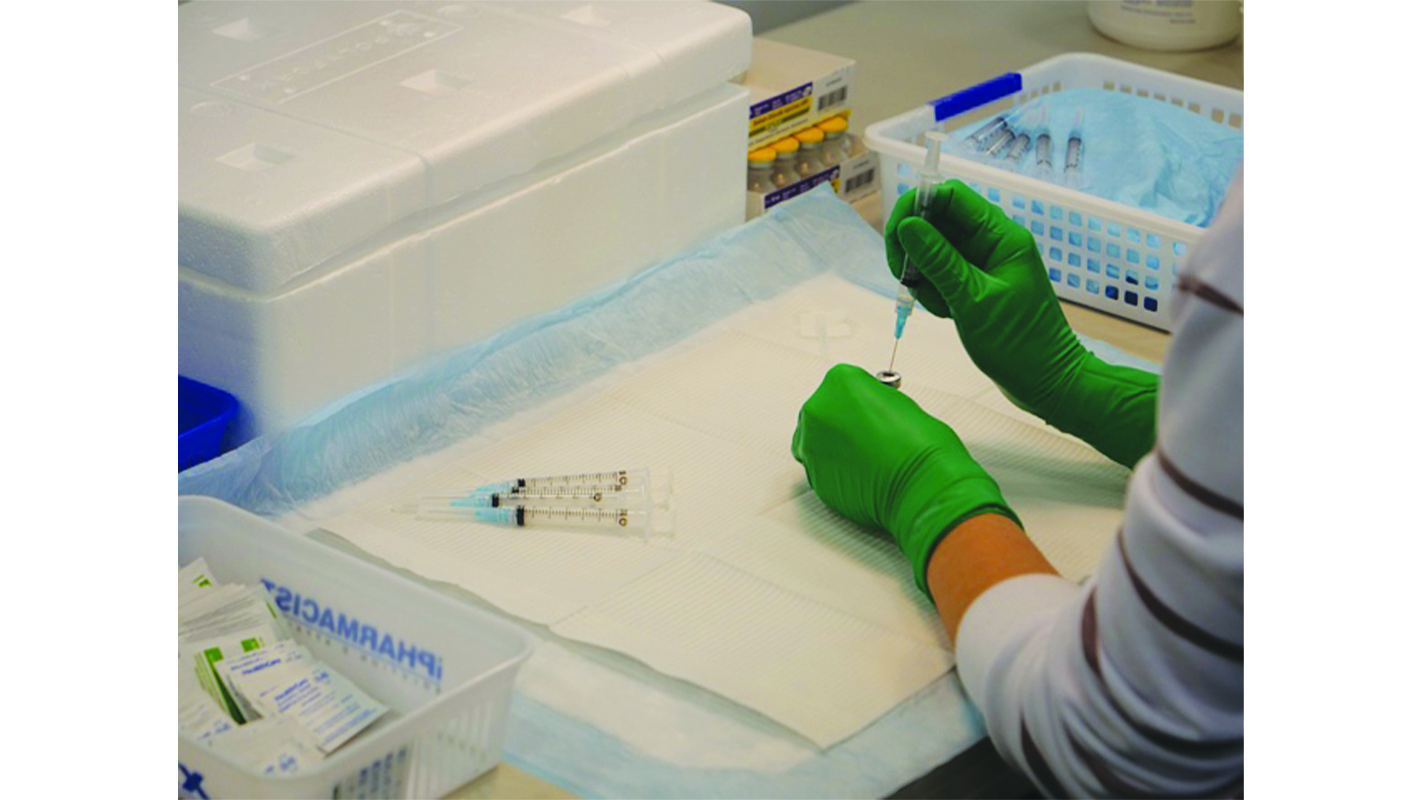By Matthew McCully
Of the roughly 1,600 residents of the Estrie region with a COVID-19 vaccination appointment on Monday, 123 refused the vaccine when they learned they were being offered the AstraZeneca brand rather than Pfizer or Moderna.
Despite assurances from Prime Minister Justin Trudeau recently, the news circulating about countries in Europe suspending the use of AstraZeneca following incidents of health issues has instilled doubt in Canadians.
Dr. Maryse Guay, a professor in community health sciences at the University of Sherbrooke said it was disappointing to hear that close to 7 per cent of Monday’s appointments refused their vaccine. Guay is a medical specialist in public health, doing research in the organization of vaccination services, healthcare, prevention and frontline services. She is also medical advisor to the Montérégie Public Health Department and the National Public Health Institute (INSPQ).
She did not mince words when asked about AstraZeneca.
“I’m a Quebecer,” Guay said, explaining she would never recommend something she felt could be harmful to her peers. “We’re not playing cowboy over here,” she added, saying health officials are hyper vigilant and studying the data about vaccine safety and efficacy daily.
“We are in a race against the variants,” Guay explained, “we want this pandemic to end.”
Guay said with the risk of a third wave on the horizon, the population should not refuse the AstraZeneca vaccine, insisting it is safe and effective against the virus.
Guay broke down the two main concerns raised in recent media reports about the vaccine: that it shouldn’t be administered to people 65 and over, and that there have been reports of bleeding and blood clotting following AstraZeneca vaccination.
On the over 65 front, Guay said the National Advisory Committee on Immunization (NACI) was originally erring on the side of caution, and has since changed its position regarding the effectiveness and safety of the vaccine in older populations.
According to Guay, the first clinical trials done for AstraZeneca didn’t include a substantial portion of people over 65. It’s not that the vaccine wasn’t good or safe, Guay said, just that there was not as much data related to that population. So, being extra careful, NACI suggested using that vaccine on people under 65.
Quebec, which contradicted NACI’s recommendation, got its information from the U.K. where the vaccine was originally developed, and discovered it was being used effectively in older populations.
NACI has since updated its recommendation to include using AstraZeneca on the general population above and below 65 years-of-age.
The optics are not great when recommendations seem as though they are changing to suit the availability of a certain vaccine, but according to Guay, science doesn’t care how things look.
Regarding the potential health complications, Guay said the incidents in question occurred in a population that is older and already at an increased risk of health issues.
The drug maker released a statement on March 14 saying that out of the more than 17 million who have received the vaccine, there have been 15 incidents of deep vein thrombosis (DVT) and 22 events of pulmonary embolism reported as of early March. “This is much lower than would be expected to occur naturally in a general population of this size and is similar across other licensed COVID-19 vaccines,” the statement reads.
“Maybe more will happen tomorrow,” Guay said, there could be another problem of some sort, but scientists are not playing with peoples’ lives. They are constantly looking at the data, which evolves daily, and are very conscious of their responsibility to ensure the safety of the population. Quebecers don’t have the luxury of refusing a vaccine and waiting for another one, Guay said, in a race against a virus.
COVID update
Quebec reported 561 new cases of COVID-19 Tuesday, bringing the total number of people infected since the beginning of the pandemic to 298,747. According to public health, 281,436 people have now recovered.
There were eight new deaths reported, for a total of 10,558 in the province.
Hospitalizations decreased by 20 for a total of 533. There are currently 91 people in intensive, down five from the day before.
Quebec has administered 774,600 doses of vaccine in the province to date.
In the Estrie region, nine new cases of COVID-19 were reported, bringing the local total to 11,805. No deaths were reported in the last day, the total remained stable at 317.
The number of cases of COVID-19 variants in Quebec increased by 179 Tuesday for a total of 522. There are also 2,179 presumptive cases in the province.
In the Estrie region, there are currently nine confirmed cases of the U.K. variant (up four from the previous day), and 31 presumptive cases.
During a press conference Tuesday Quebec Premier Francois Legault announced that the Gaspésie–Îles-de-la-Madeleine, la Côte-Nord et le Nord-du-Québec will shift from orange to yellow level, meaning no more curfew, two families can gather in a home, and contact sports are permitted in limited numbers.
Montreal and other red zones’ curfew will be pushed from 8 p.m. to 9:30 p.m. this week, and by March 22 students in Secondary 3,4 and 5 can return to school full time, the premier added. By March 26, theatres and concert venues can reopen, and churches can hold service for up to 25 people. According to Legault, every Quebecer who wants will have access to a first dose of vaccine by June 24.
For full story and others, subscribe now.






